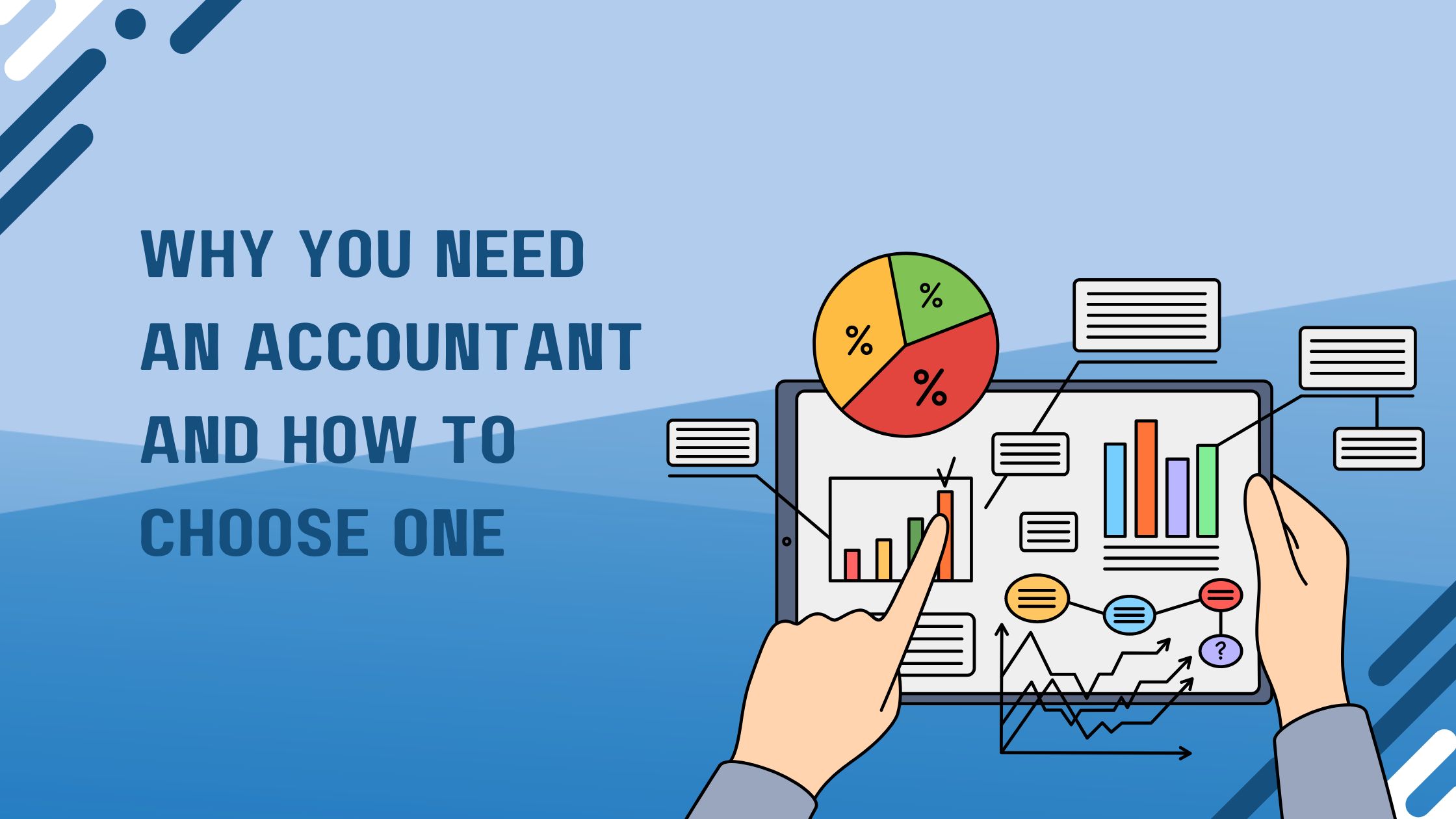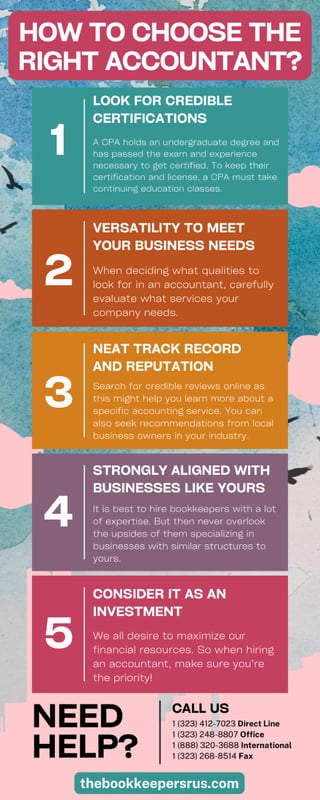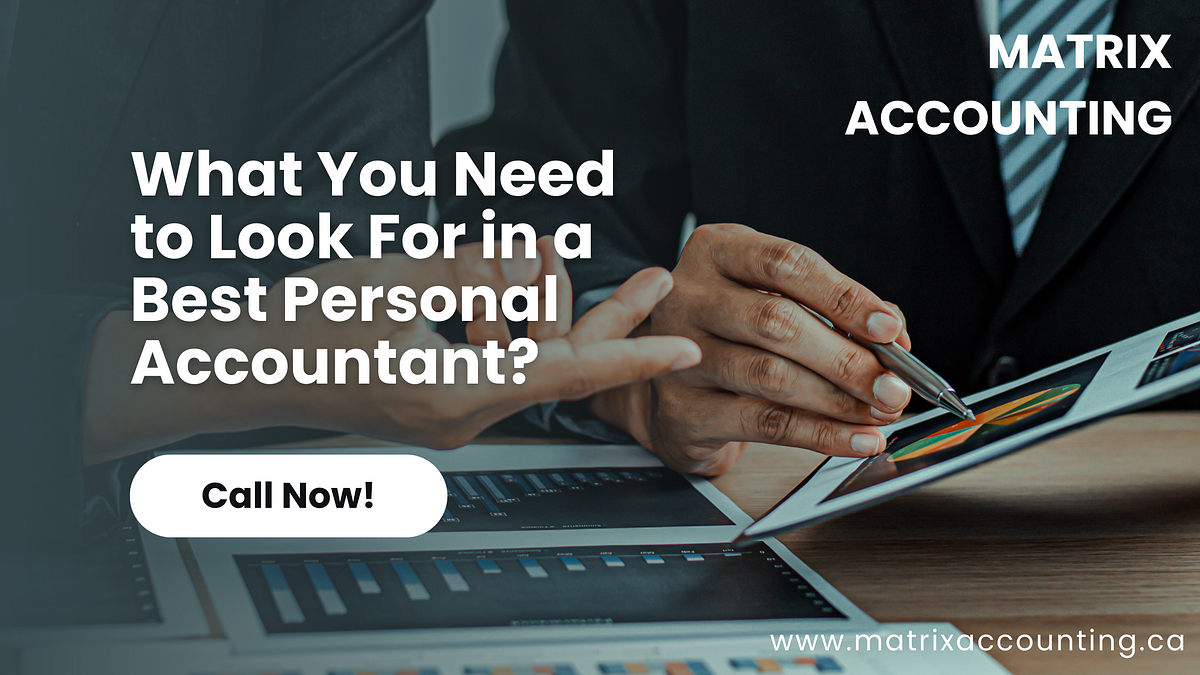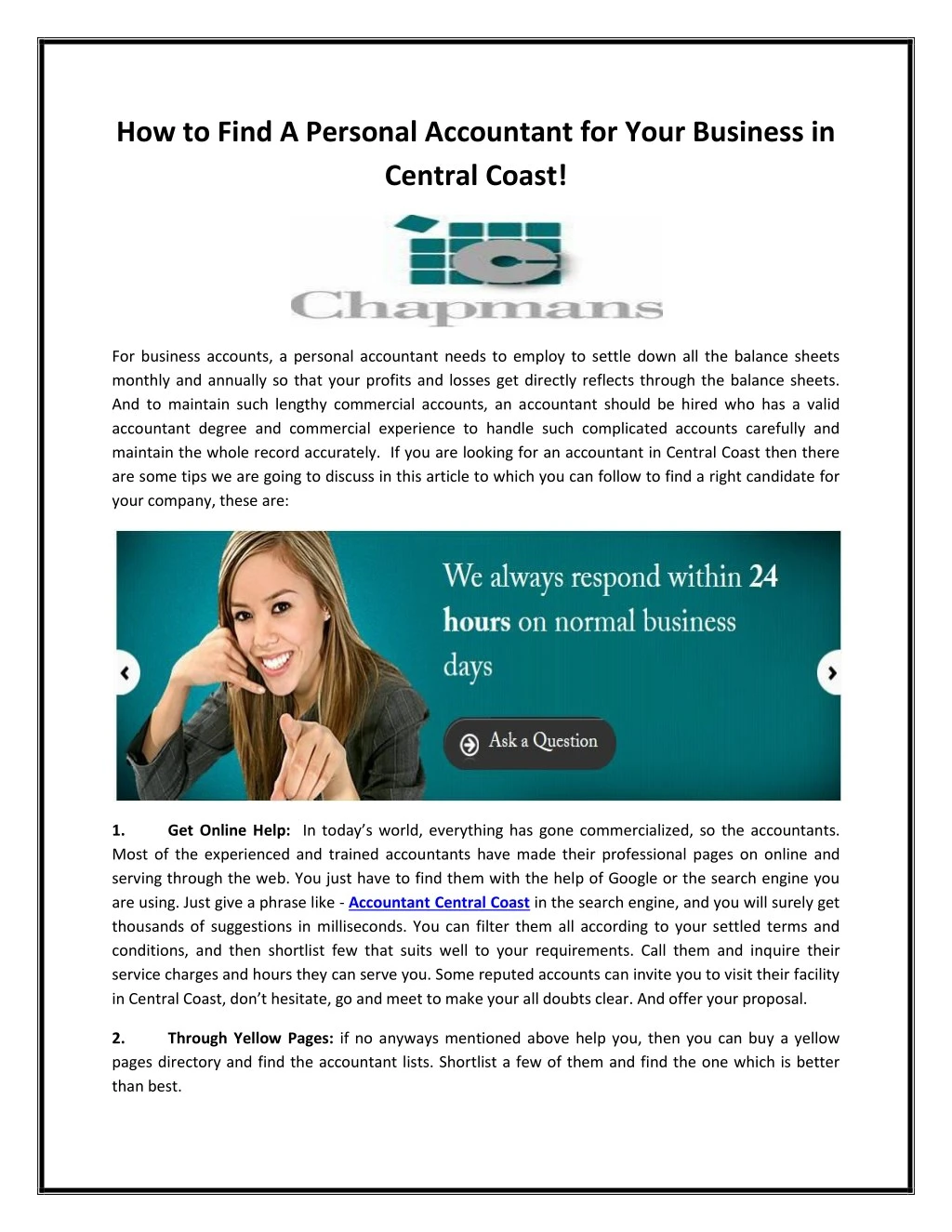How To Choose A Personal Accountant

The quest for a reliable personal accountant can feel like navigating a financial maze. Making the wrong choice can lead to missed deductions, compliance issues, and ultimately, a dent in your financial well-being. Choosing wisely, however, can provide peace of mind and optimize your financial strategy.
This article provides a comprehensive guide to selecting the right personal accountant. It covers essential qualifications, key questions to ask, and red flags to watch out for, ensuring you find a professional who aligns with your specific needs and financial goals. The goal is to empower individuals to make informed decisions and safeguard their financial future.
Assessing Your Needs and Defining Your Scope
Before beginning your search, clarify your specific accounting needs. Are you a freelancer requiring assistance with self-employment taxes? Do you have complex investments necessitating expert advice?
Perhaps you simply need help with annual tax preparation. Understanding your requirements will help you narrow down your options and identify accountants with the relevant expertise.
Credentials and Qualifications: Setting the Bar High
Look for accountants with recognized credentials. A Certified Public Accountant (CPA) designation indicates a high level of competence and ethical standards. CPAs have passed rigorous examinations and are subject to ongoing professional development requirements.
Other relevant credentials include Enrolled Agent (EA), who are federally-authorized tax practitioners empowered to represent taxpayers before the IRS. Verifying credentials through state boards of accountancy or professional organizations is crucial.
Experience and Specialization: Finding the Right Fit
Experience matters, especially when dealing with complex financial situations. Seek an accountant with a proven track record in handling cases similar to yours.
Consider an accountant who specializes in areas relevant to your financial profile, such as small business accounting, estate planning, or retirement planning. Specialized knowledge can significantly benefit your financial outcomes.
Asking the Right Questions: Probing for Clarity
Interview potential accountants to assess their communication skills, expertise, and compatibility. Inquire about their experience with your specific needs.
Ask about their fee structure. Is it hourly, a fixed fee, or a percentage of your refund? Clarify how they handle communication and access to your financial information.
Don't hesitate to ask about their approach to tax planning and problem-solving. Understanding their strategies will give you confidence in their abilities.
Checking References and Reviews: Seeking External Validation
Request references from current or former clients to gain insights into the accountant's service quality and professionalism. Contacting these references allows you to hear firsthand experiences and assess their satisfaction.
Explore online reviews and testimonials. Platforms like Yelp and Google Reviews can offer valuable perspectives on the accountant's reputation. Be mindful of both positive and negative feedback, looking for patterns and consistency.
Red Flags: Identifying Potential Issues
Be wary of accountants who guarantee specific outcomes, such as excessively large refunds. Ethical accountants focus on accurate and compliant tax preparation, not unrealistic promises.
Avoid accountants who are reluctant to provide references or are evasive about their qualifications. Transparency and openness are crucial for a trustworthy professional relationship.
If an accountant suggests aggressive or questionable tax strategies, proceed with caution. Compliance with tax laws is paramount.
The Cost Factor: Balancing Value and Affordability
Accounting fees can vary significantly depending on experience, location, and complexity of services. Obtain quotes from several accountants to compare pricing.
Remember that the cheapest option may not always be the best. Focus on value – the quality of service, expertise, and potential tax savings – rather than solely on cost.
Consider the long-term benefits of a skilled accountant. Their expertise can save you money and prevent costly errors in the long run.
Building a Long-Term Relationship: Fostering Trust and Communication
Selecting a personal accountant is not just a transaction, but the beginning of a potentially long-term partnership. Choose someone you feel comfortable communicating with.
Regular communication and proactive advice are essential for effective financial planning. Your accountant should be accessible and responsive to your questions and concerns.
Open communication is the cornerstone of a successful client-accountant relationship. Trust in your accountants expertise is the best way to secure your future.
The Future of Accounting: Embracing Technology
The accounting landscape is increasingly influenced by technology. Look for accountants who embrace cloud-based accounting software and digital tools.
Technology can streamline processes, improve accuracy, and provide real-time access to your financial data. Embracing these advancements can enhance efficiency and convenience.
As noted by the AICPA (American Institute of Certified Public Accountants), "Technological proficiency is increasingly vital for CPAs to meet the evolving needs of clients and maintain a competitive edge."
Conclusion: Securing Your Financial Future
Choosing the right personal accountant is a crucial investment in your financial well-being. By carefully assessing your needs, verifying credentials, asking the right questions, and seeking external validation, you can find a trusted advisor who will guide you towards your financial goals.
Don't rush the process; take the time to research and interview potential candidates. The rewards of a well-chosen accountant – peace of mind, optimized finances, and long-term security – are well worth the effort.


![How To Choose A Personal Accountant How To Choose the Right Accounting Career Path [Salaries]](https://www.robertsoncollege.com/site-content/uploads/2024/04/accounting-career-path-1024x911.png)















